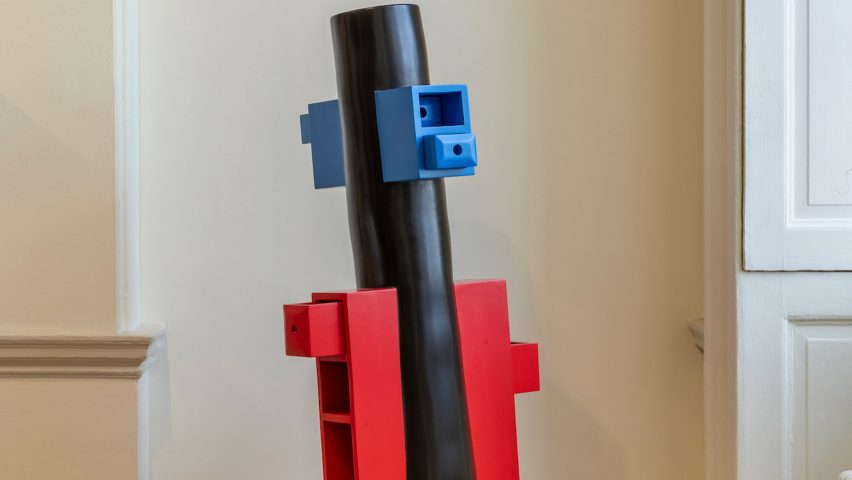
Jean Servais Somian carves fallen coconut trees into towering cabinets
Reaching up to two and a half metres in height, these cabinets on show at the Collect craft fair in London were created by Ivorian designer Jean Servais Somian to showcase the natural beauty of coconut wood.
Each of the four cupboards was carved from the trunk of a single coconut palm tree, sourced from the Ivory Coast where the trees had been felled to make way for new construction.
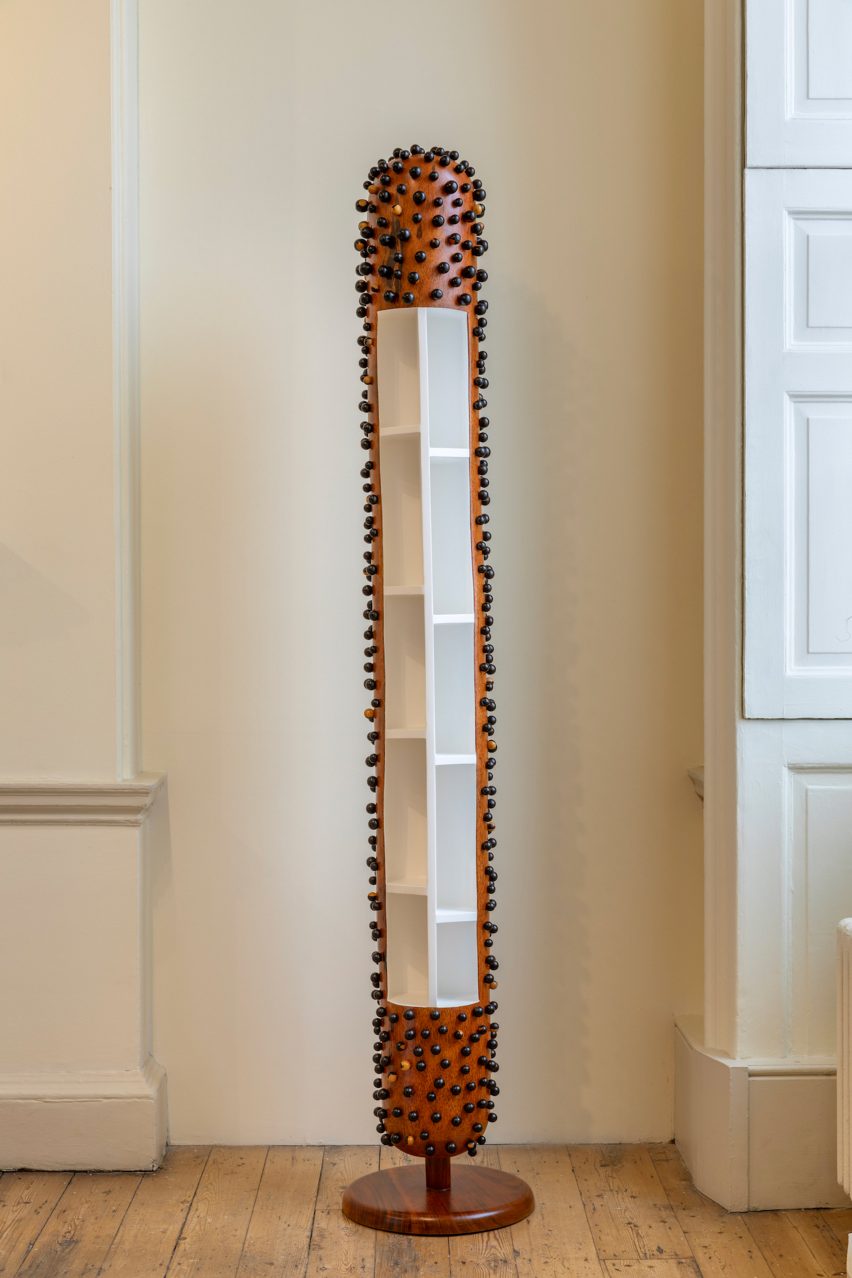
Using a dying craft technique, Somian turned these trunks into characterful furniture pieces reminiscent of human faces and dancing figures, in a bid to find new uses for this traditional material.
"I was lucky to be trained on how to deal with this wood by an elder at the beginning of my career and I wanted to preserve and develop this technique that was specific to tropical and equatorial places," he told Dezeen.
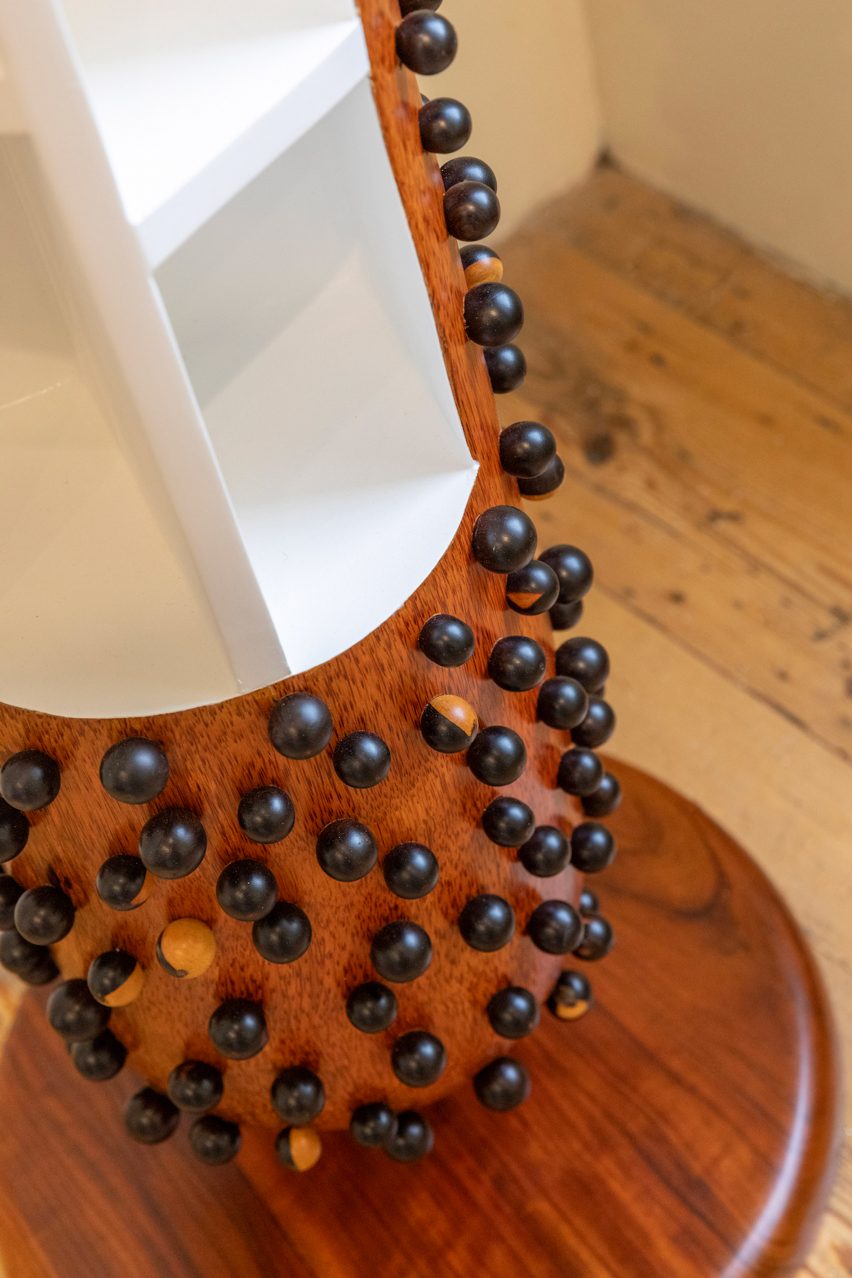
"My work is also to educate my fellow coastal people that the wood can be used as a building material," he added. 'There is still so much of it that is used as a burning material, a fuel for cooking."
Although each piece is unique, all are connected by their interrogation of how Western art movements borrowed from traditional African art.
Two of the cabinets – taken from Somian's Masque series – are covered almost entirely in wooden spikes or beads, resembling hair around an abstracted human face, much like the nails that sometimes adorn African masks.
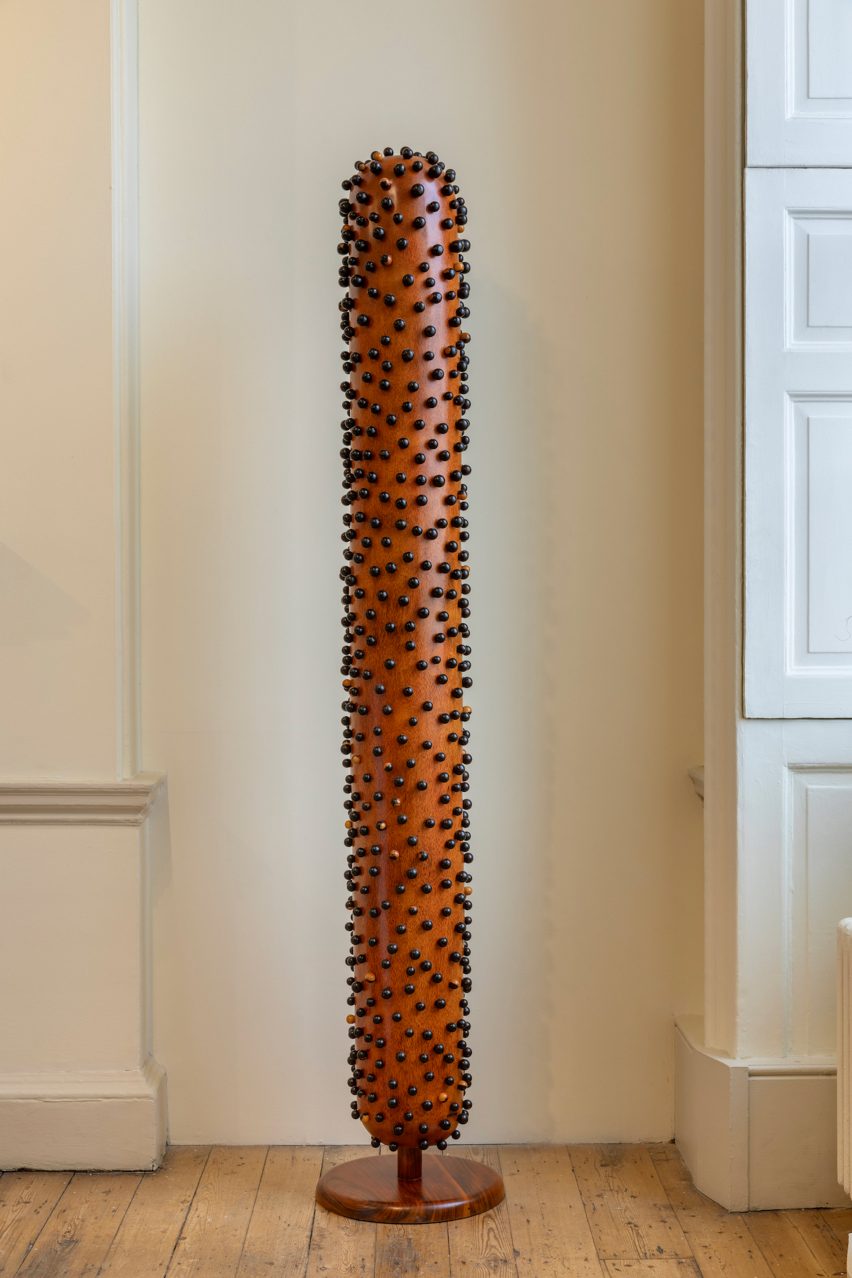
Otherwise, the pieces feature little in the way of adornment and are made using only the straightest trees to evoke the clean lines of art deco.
"Palm tree wood was massively used in the French art deco period," Somian said. "There was an interest in the exotic, which derived from the peak of colonisation of African territories by European powers."
"Today, these trees are our own and we need to nurture them and be creative to use them for our own enjoyment as well."
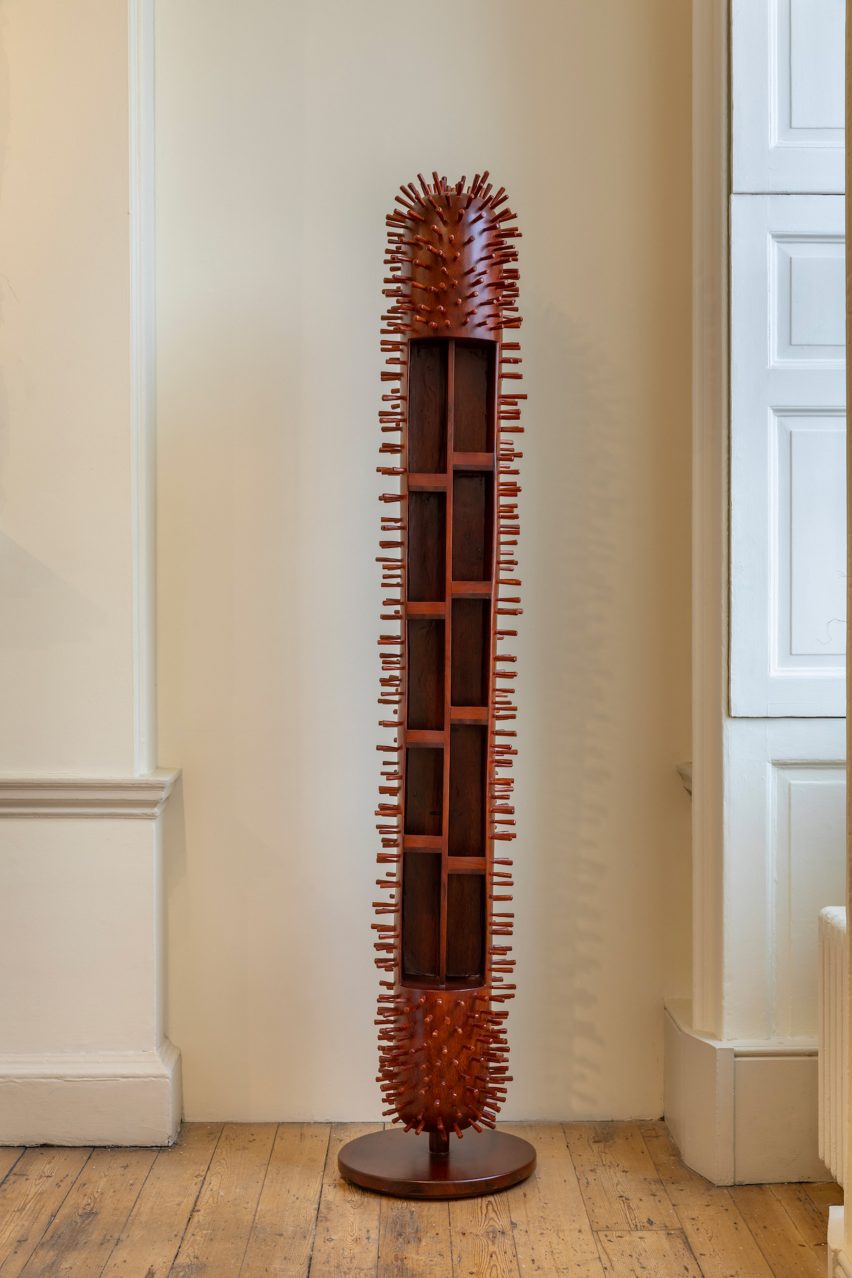
The two remaining cabinets are from his Demoiselles series, named after artist Pablo Picasso's Les Demoiselles d'Avignon – a proto-Cubist portrait of five women in a brothel, which was informed by the angular geometries of African sculptures.
In Somian's cabinets, this idea is represented through angular drawers painted in primary colours, while their frames follow the natural curvature of the tree trunks to create the impression of looking at a human figure in movement.
Most of the pieces also retain the natural height of the palm trees, with some standing taller than a person at up to 2.5 metres.
"The height of the coconut tree is part of the awe, the fascination it creates in people," Somian said. "To exalt the material, it seems important to me to keep this element of verticality and height."
"I also love to keep the natural curvature of the trunks in some of my sculptures, as this refers to the winds and sun conditions of where the tree grew."
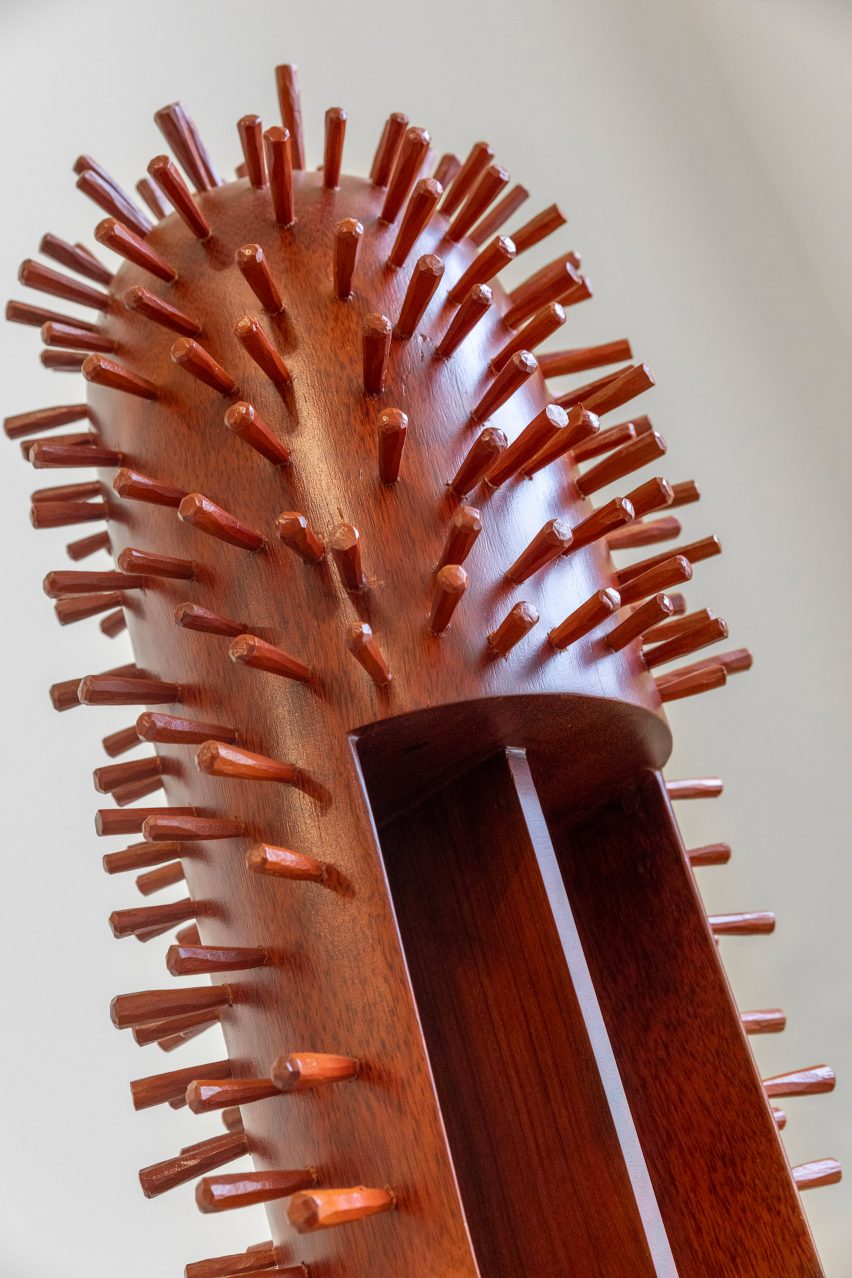
Somian began his career as a woodworker by learning traditional carving techniques in the Ivory Coast before going on to study carpentry and design in Lausanne, France.
His work often uses reclaimed materials such as old canoes and fallen palm trees, which he has previously fashioned into a stool shaped like a vase.
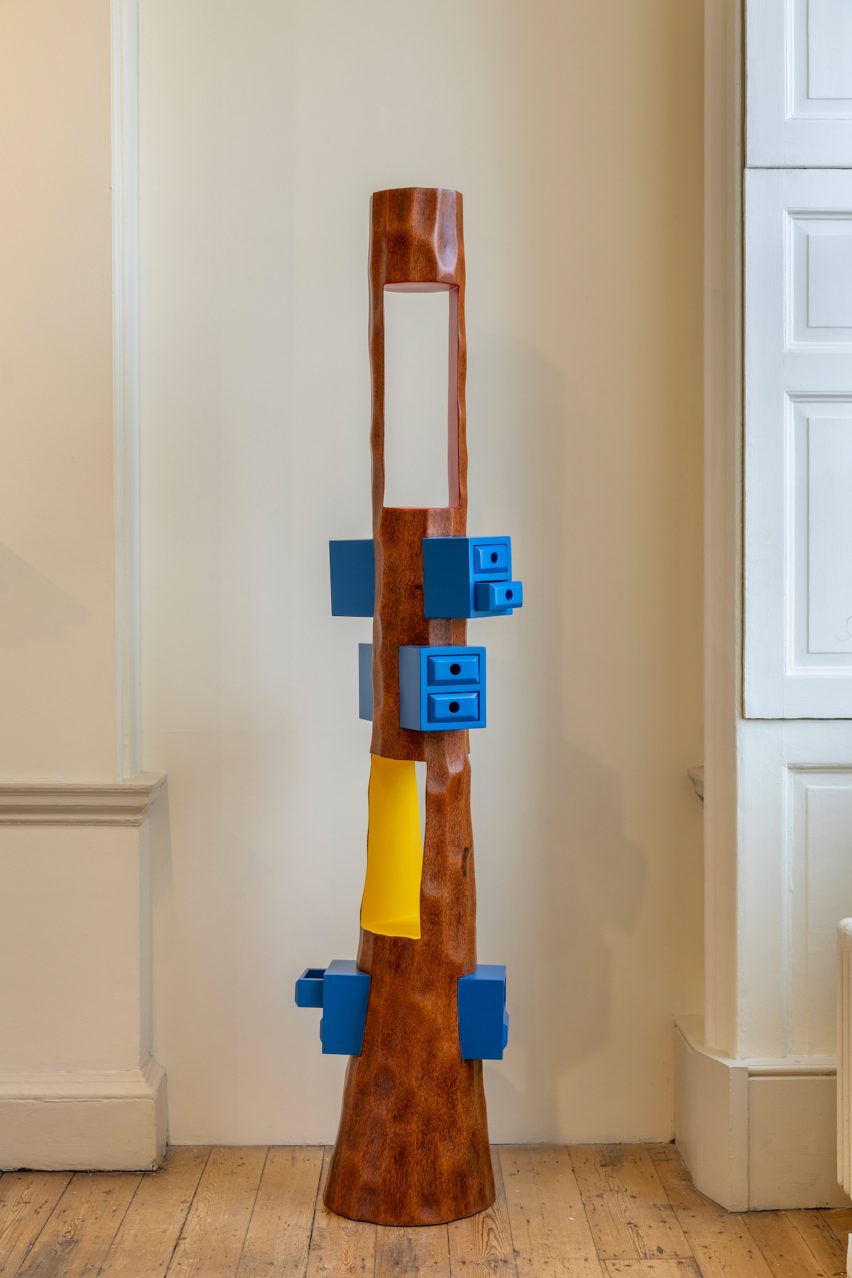
But more recently, the designer has abandoned all other materials in favour of coconut wood.
"Because it is a very difficult wood to work on, it has become a passion for me to perfect my craftmanship," Somian said. "It is very different from the wood from trees, very dense and very strong, and fibrous at the same time."
"It requires a specific technique that I have perfected over the years. It is all about digging and carving using both strength and precision not to break the fibres."
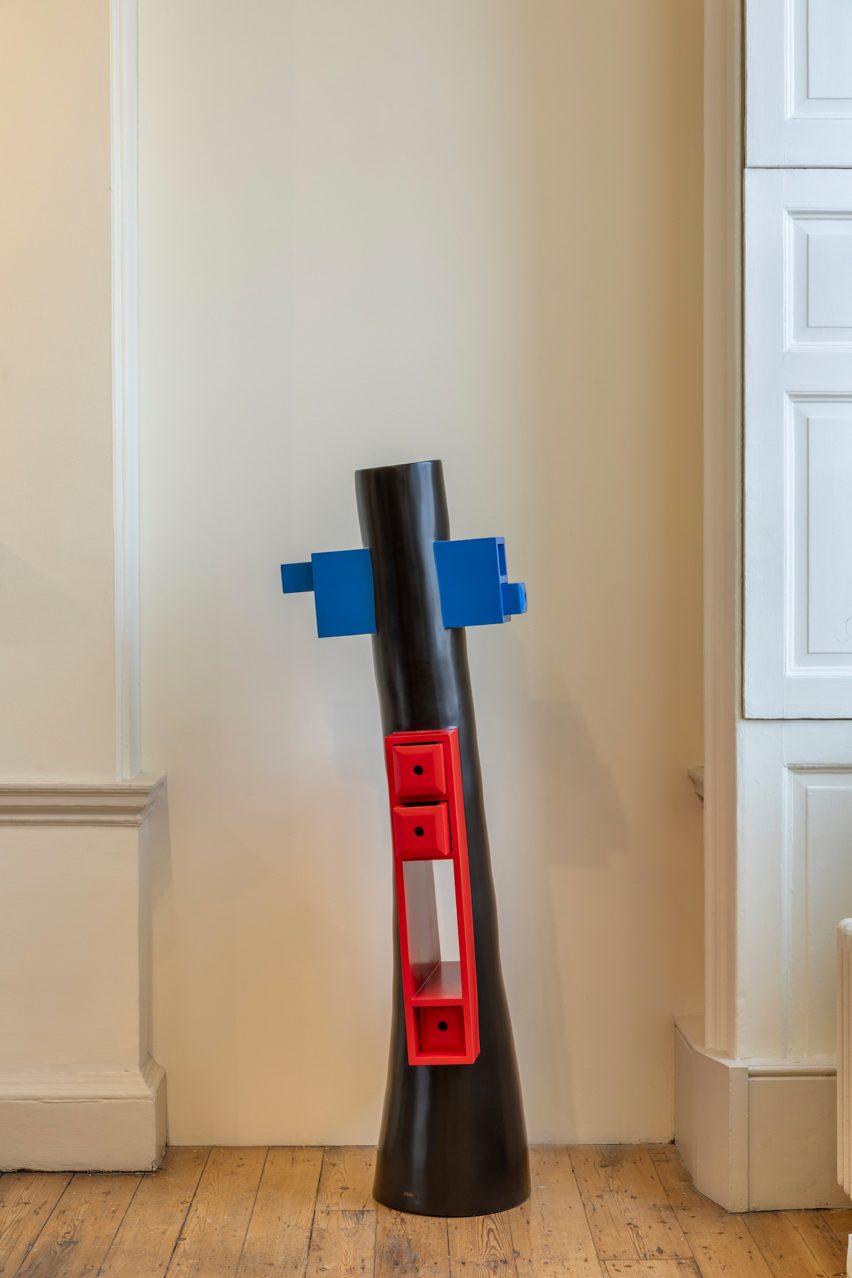
At Collect, his pieces were exhibited by London gallery 50 Golborne, which supports emerging talent from the African continent and its diaspora.
Somian was among a number of designers at the fair to bring traditional woodworking techniques into the 21st century.
Others included East Sussex studio Ash & Plumb, which exhibited a series of 14 vessels made from a lightning-struck oak.
Collect 2024 took place from 1 to 3 March 2024 at London's Somerset House. See Dezeen Events Guide for more architecture and design events around the world.